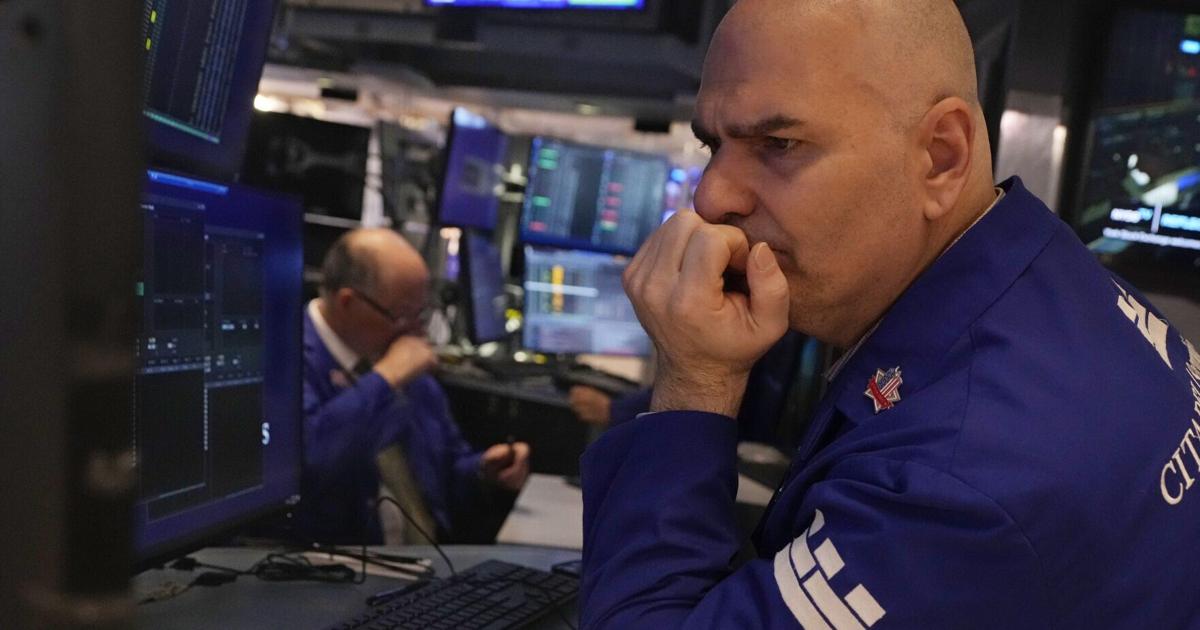A week and a half of wild gyrations in the stock market has left Louisiana investors feeling shaken.
Stocks plunged after President Donald Trump announced far-reaching new tariffs on nearly all U.S. trading partners on April 2, part of an effort he said would shift manufacturing back to America and punish countries he said were taking advantage of taxpayers. Then, on Wednesday, the S&P 500 had its best single day since the 2008 financial crisis, soaring 9.5% after Trump backed down, pausing nearly all the tariffs for 90 days.
Uncertainty has remained high, and whipsawing markets have left everyone from global CEOs to penny-pinching retirees questioning what’s ahead for the economy and financial markets.
But local financial experts, who acknowledged there were moves investors could make to shore up their portfolios, largely offered one piece of advice for stockholders: stay the course, keep working toward personal financial goals and don’t make any drastic moves.
“You prepare clients well for the ebbs and flows of the market and any surprises that come along,” said Pete Bush who manages $450 million at Horizon Financial Group in Baton Rouge. “You build a portfolio to prepare for times like this.”
One positive thing about the recent market swings: it shows the advantage of allocating assets. Bush said he had some clients come to his office, expecting to see a 20% drop in their investments.
They were surprised to see the declines were smaller than they feared. “Real estate, gold, value stocks, the big blue chips, they hung in well,” he said.
‘Holding their breath’
Trump’s election last year sparked a jump in stocks as investors hoped for market-friendly policies like lower taxes and relaxed regulations. But he also spoke about tariffs, and his decision earlier this month to call for sweeping tariffs on every major U.S. trading partner immediately prompted a market swoon.
Mainstream economists said the tariffs would slow growth and boost inflation. Corporate leaders said they were preparing for lower spending. Some influential CEOs said a recession was likely.
Peter Ricchiuti, a finance professor at Tulane University, called Trump’s tariffs “a self-inflicted wound” that upended a U.S. economy with record low unemployment and a stock market coming off two years of gains that exceeded 20%.
“This is the worst economic move of any presidential administration in the past 90 years,” said Ricchiuti, who tracks regional stocks across the South through the university’s Burkenroad Reports. To find something with more of a negative effect, he said you have to go back to the policies of President Herbert Hoover, which led to the Great Depression.
Jude Melville, CEO of b1Bank, said the uncertainty around tariffs over the past two months has led to fewer clients seeking loans compared to the end of last year. But he said the recent moves by Trump hadn’t yet raised the possibility of higher defaults.
“It’s not off the charts and there are not material signs of credit degradation,” he said. “People are holding their breath for a second and seeing where things sort out.”
The market swings have not affected b1Bank’s operations or how it will invest capital, Melville said. Management looks at what decisions are best in the long term and doesn’t operate based on the day-to-day stock price. “But certainly, a rising stock market gives you more options,” he said.
Trade, politics and stock trading
Local investment advisors said that it’s been easy to tell their clients political leanings by how they’ve reacted to the market swings. Trump supporters want to hold steady, while “never-Trump” Republicans and Democrats are more likely to see calamity ahead.
But letting personal politics influence financial moves isn’t a good idea, they said.
“Trump is the elephant in the room, but he’s the elephant that won the election,” said Mickey Guidry, managing partner with Altus Wealth Management in Baton Rouge. “That influenced the perception of what is going on.”
Guidry, who manages $900 million, said he’s been looking to keep clients diversified. That includes moving into small and medium-cap stocks, defensive stocks and those that pay dividends. Some examples of defensive stocks are pharmaceuticals, tobacco companies and brewers.
“No matter what the economy is, people are going to drink beer and smoke cigarettes,” he said.
John Paul Caswell, president of Iron Horse Financial in Baton Rouge, said while the fluctuations in stock prices are jarring, the only clients who are losing money are those pulling out of the market.
“Nobody wants to see a downturn in their 401k, but we’ve been proactive in making calls and making sure our clients are comfortable,” he said.
The fact that the U.S. continues to add private sector jobs and oil prices are falling suggests that the economy could remain resilient, Caswell said.
That, along with lower stock prices, could lead people to get into the market. “For people who have never invested, it’s a great time to get in,” he said.
Caswell said some clients are watching the market closely, ready to jump in.
The lingering question is what will happen next with tariffs. Will Trump go back to taking a hard line? Or is he using the threat of raising the cost of exporting goods to negotiate concessions from trading partners?
Austin Zaunbrecher, head of investments and advice in Louisiana for J.P. Morgan Private Bank, said the least likely outcome is a return to the trade status quo.
“We’re talking to our clients to see what we can do to make them more resilient in the long term,” he said.
That involves making investments in conservative, stable sectors, such as infrastructure, buying gold and rebalancing portfolios, moving out of stocks and into bonds.
“There’s a lot of uncertainty,” he said.



